Fleurs du Mal Magazine


Or see the index
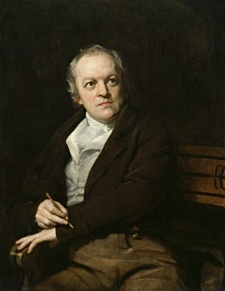
William Blake
London
I wander thro’ each charter’d street,
Near where the charter’d Thames does flow,
And mark in every face I meet
Marks of weakness, marks of woe.
In every cry of every Man,
In every Infant’s cry of fear,
In every voice, in every ban,
The mind-forg’d manacles I hear.
How the Chimney-sweeper’s cry
Every black’ning Church appalls;
And the hapless Soldier’s sigh
Runs in blood down Palace walls.
But most thro’ midnight streets I hear
How the youthful Harlot’s curse
Blasts the new born Infant’s tear,
And blights with plagues the Marriage hearse.
William Blake (1757 – 1827)
Poem: London
fleursdumal.nl magazine
More in: Archive A-B, Blake, William

William Blake
The Tiger
Tiger Tiger. burning bright,
In the forests of the night;
What immortal hand or eye.
Could frame thy fearful symmetry?
In what distant deeps or skies.
Burnt the fire of thine eyes?
On what wings dare he aspire?
What the hand, dare seize the fire?
And what shoulder, & what art,
Could twist the sinews of thy heart?
And when thy heart began to beat.
What dread hand? & what dread feet?
What the hammer? what the chain,
In what furnace was thy brain?
What the anvil? what dread grasp.
Dare its deadly terrors clasp?
When the stars threw down their spears
And watered heaven with their tears:
Did he smile His work to see?
Did he who made the lamb make thee?
Tiger Tiger burning bright,
In the forests of the night:
What immortal hand or eye,
Dare frame thy fearful symmetry?
William Blake (1757 – 1827)
The Tiger
fleursdumal.nl magazine
More in: Archive A-B, Blake, William

William Blake
The Chimney Sweeper
When my mother died I was very young,
And my father sold me while yet my tongue,
Could scarcely cry weep weep weep weep,
So your chimneys I sweep & in soot I sleep.
Theres little Tom Dacre, who cried when his head
That curled like a lambs back was shav’d, so I said.
Hush Tom never mind it, for when your head’s bare,
You know that the soot cannot spoil your white hair
And so he was quiet. & that very night.
As Tom was a sleeping he had such a sight
That thousands of sweepers Dick, Joe, Ned, & Jack
Were all of them lock’d up in coffins of black,
And by came an Angel who had a bright key
And he open’d the coffins & set them all free.
Then down a green plain leaping laughing they run
And wash in a river and shine in the Sun.
Then naked & white, all their bags left behind.
They rise upon clouds, and sport in the wind.
And the Angel told Tom, if he’d be a good boy,
He’d have God for his father & never want joy.
And so Tom awoke and we rose in the dark
And got with our bags & our brushes to work.
Tho’ the morning was cold, Tom was happy & warm
So if all do their duty, they need not fear harm.
William Blake (1757 – 1827)
Poem: The Chimney Sweeper
fleursdumal.nl magazine
More in: Archive A-B, Blake, William
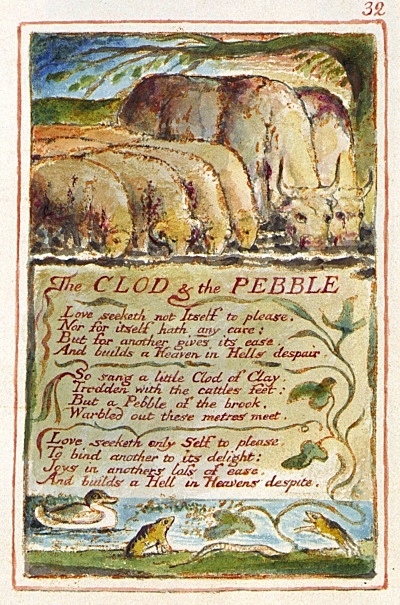
DE KLUIT EN DE KIEZEL
“De Liefde zoekt geen zelfplezier,
En eigen zorg vult niet haar hart,
Maar biedt aan de ander haar vertier,
Door Hemelbouw in Helse smart.”
Vertreden door de koeienpoot,
Kweelde dit een Kluit van Klei;
Maar een Kiezel uit de sloot
Zong dit rake rijm daarbij:
“De Liefde zoekt slechts zelfplezier,
Legt op aan anderen haar jolijt,
Zwelgt in een anders onvertier,
En bouwt een Hel, de Hemel ten spijt.”
WILLIAM BLAKE
Verzen van Onschuld en van Ervaring
Auteur: William Blake;
vertaling en voorwoord: Cornelis W. Schoneveld
(tweetalige uitgave met illustraties)
118 pagina’s; afmetingen: 10x200x125 mm
ISBN: 978 90 824288 1 0
fleursdumal.nl magazine
More in: - Book News, Blake, Blake, William, TRANSLATION ARCHIVE
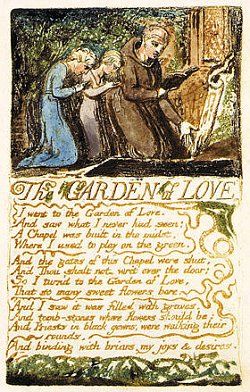
William Blake
(1757-1827)
The Garden Of Love
I went to the Garden of Love,
And saw what I never had seen:
A Chapel was built in the midst,
Where I used to play on the green.
And the gates of the Chapel were shut,
And Thou shalt not writ over the door;
So I turn’d to the Garden of Love
That so many sweet flowers bore,
And I saw it was filled with graves,
And tomb-stones where flowers should be:
And Priests in black gowns were walking their rounds,
And binding with briars my joys & desires.
William Blake poetry
fleursdumal.nl magazine
More in: Archive A-B, Blake, William

William Blake
(1757-1827)
A POISON TREE
Was angry with my friend:
I told my wrath, my wrath did end.
I was angry with my foe:
I told it not, my wrath did grow.
And I watered it in fears,
Night and morning with my tears;
And I sunnèd it with smiles,
And with soft deceitful wiles.
And it grew both day and night,
Till it bore an apple bright;
And my foe beheld it shine,
And he knew that it was mine,
And into my garden stole,
When the night had veiled the pole:
In the morning glad I see
My foe outstretched beneath the tree.
William Blake poetry
fleursdumal.nl magazine
More in: Archive A-B, Blake, William, DRUGS & DISEASE & MEDICINE & LITERATURE
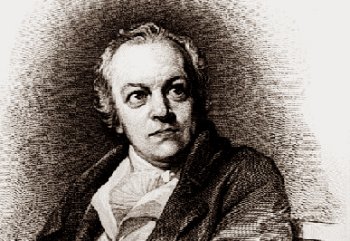
William Blake
(1757-1827)
A POISON TREE
Was angry with my friend:
I told my wrath, my wrath did end.
I was angry with my foe:
I told it not, my wrath did grow.
And I watered it in fears,
Night and morning with my tears;
And I sunnèd it with smiles,
And with soft deceitful wiles.
And it grew both day and night,
Till it bore an apple bright;
And my foe beheld it shine,
And he knew that it was mine,
And into my garden stole,
When the night had veiled the pole:
In the morning glad I see
My foe outstretched beneath the tree.
William Blake poetry
kempis.nl poetry magazine
More in: Archive A-B, Blake, William
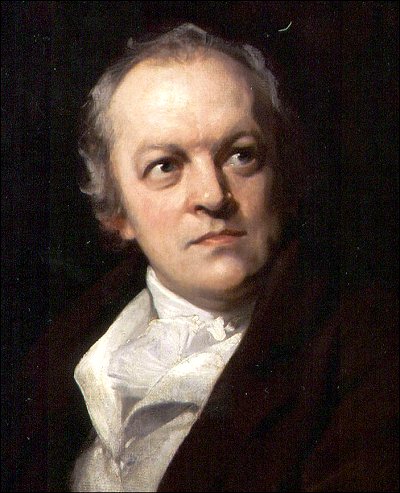
William Blake
(1757-1827)
London
(From: Songs of Experience)
I wandered through each chartered street,
Near where the chartered Thames does flow,
A mark in every face I meet,
Marks of weakness, marks of woe.
In every cry of every man,
In every infant’s cry of fear,
In every voice, in every ban,
The mind-forged manacles I hear:
How the chimney-sweeper’s cry
Every blackening church appalls,
And the hapless soldier’s sigh
Runs in blood down palace-walls.
But most, through midnight streets I hear
How the youthful harlot’s curse
Blasts the new-born infant’s tear,
And blights with plagues the marriage-hearse.
Londen
(uit: Liederen van ervaring)
Waar de verpachte Theemsstroom gaat
Zwerf ik door ‘s stads verpachte hart,
En merk in elk langsgaand gelaat
Tekens van zwakheid en van smart,
Waar ik in elke mensenzucht,
In elk bang-krijtend babykoor,
In elke vloek, elk hart gelucht
De brein-gesmede ketens hoor.
De schoorsteenvegers roep bezeert
Elke kerk, gezwart door roet;
‘n Zucht die de soldaat verteert
Stroomt de paleismuur af in bloed.
Maar ‘t meeste hoor ik ‘s nacht op straat
Hoe de vloek der jonge slet
Tranen schroeit die een boreling laat,
En met de pest de trouw-baar smet.
Vertaling: Cornelis W. Schoneveld
Uit: Bestorm mijn hart, de beste Engelse gedichten uit de 16e-19e eeuw gekozen en vertaald door Cornelis W. Schoneveld, tweetalige editie. Rainbow Essentials no. 55, Uitgeverij Maarten Muntinga, Amsterdam, 2008, 296 pp, € 9,95 ISBN: 9789041740588
Bestorm mijn hart bevat een dwarsdoorsnede van vier eeuwen lyrische Engelse dichtkunst. Dichters uit de zestiende tot en met de negentiende eeuw dichter onder andere over liefde, natuur, dood en religie. Niet alleen de Nederlandse vertaling is in deze bundel te vinden, maar ook de originele Engelse versie. Deze prachtige bloemlezing, met gedichten van onder anderen Shakespeare, Milton, Pope en Wordsworth, is samengesteld en vertaald door Cornelis W. Schoneveld. Hij is vele jaren docent historische Engelse letterkunde en vertaalwetenschapper aan de Universiteit van Leiden geweest.
kempis.nl poetry magazine

More in: Blake, Blake, William, London Poems
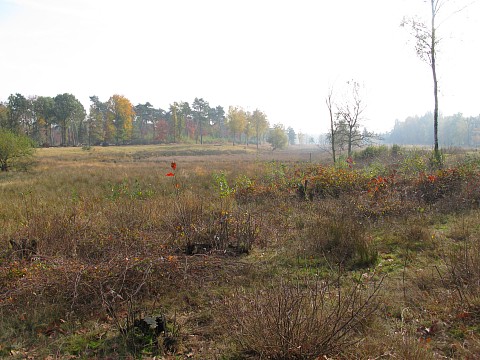
.jpg)
William Blake
(1757-1827)
To Autumn
O Autumn, laden with fruit, and stainèd
With the blood of the grape, pass not, but sit
Beneath my shady roof; there thou may’st rest,
And tune thy jolly voice to my fresh pipe,
And all the daughters of the year shall dance!
Sing now the lusty song of fruits and flowers.
`The narrow bud opens her beauties to
The sun, and love runs in her thrilling veins;
Blossoms hang round the brows of Morning, and
Flourish down the bright cheek of modest Eve,
Till clust’ring Summer breaks forth into singing,
And feather’d clouds strew flowers round her head.
`The spirits of the air live on the smells
Of fruit; and Joy, with pinions light, roves round
The gardens, or sits singing in the trees.’
Thus sang the jolly Autumn as he sat;
Then rose, girded himself, and o’er the bleak
Hills fled from our sight; but left his golden load.
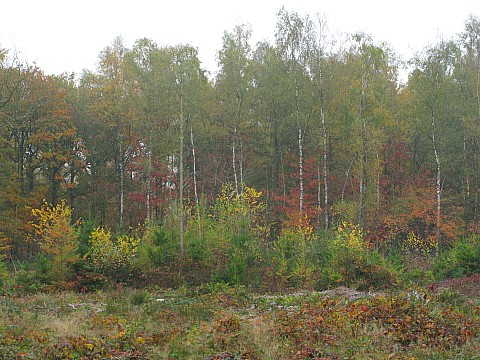
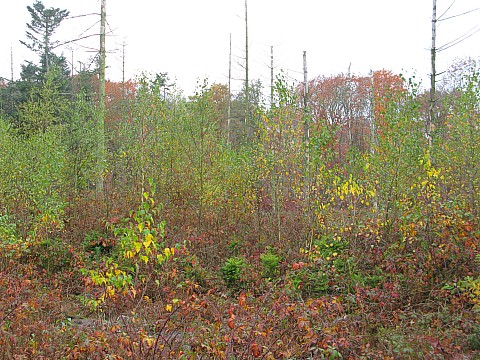
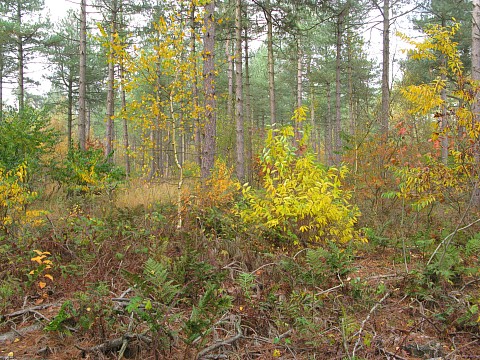
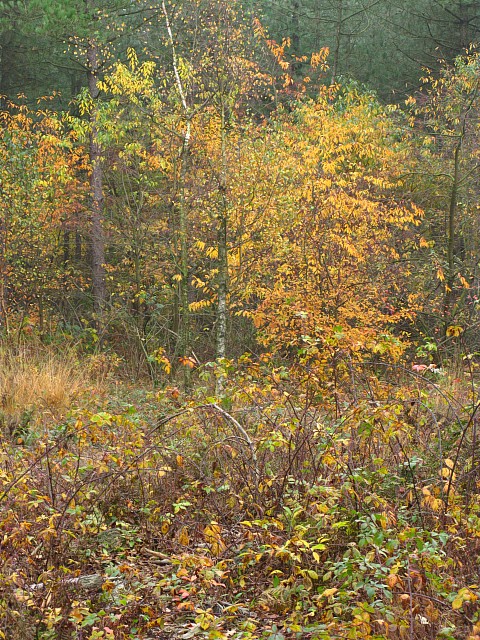

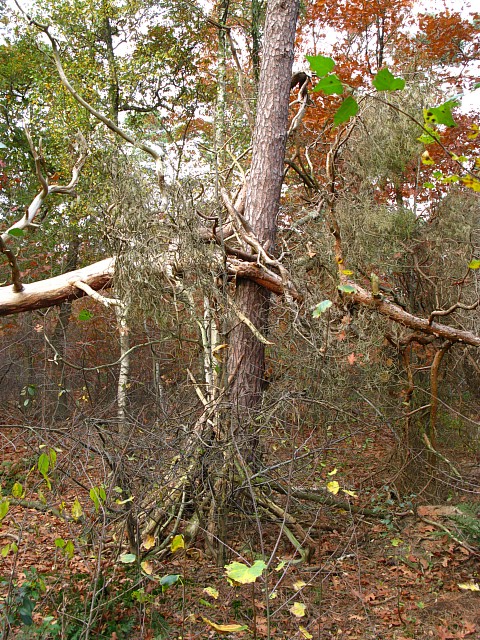
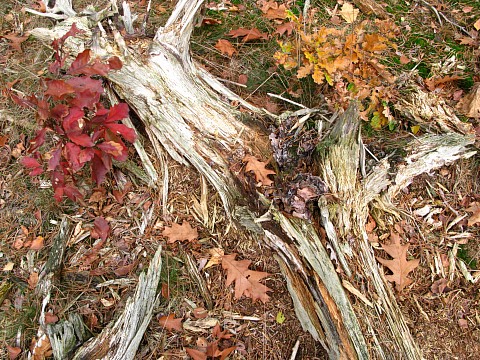
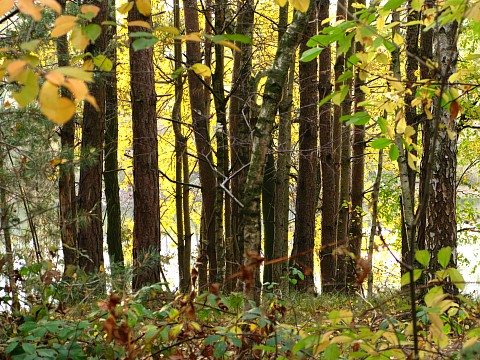
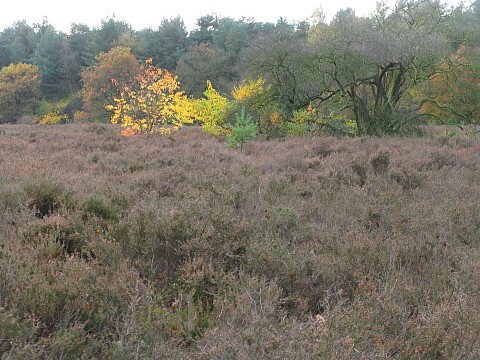

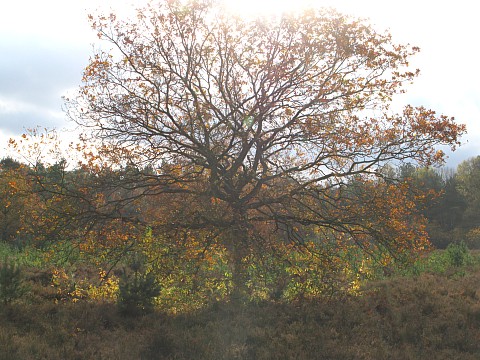
Ton van Kempen photos: Autumn 4
W. Blake poetry
fleursdumal.nl magazine
More in: 4SEASONS#Autumn, Archive A-B, Archive A-B, Blake, William, Ton van Kempen Photos
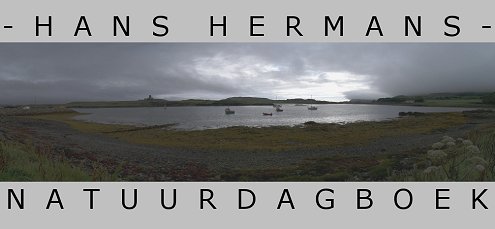
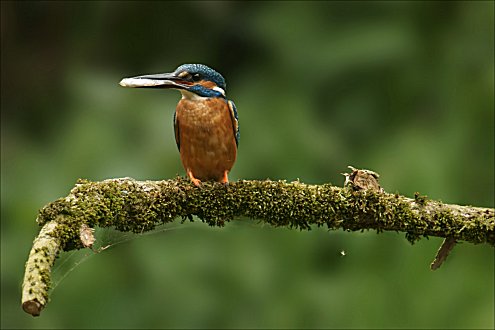
W i l l i a m B l a k e
(1757-1827)
Seven poems from: Songs of Innocence
& Songs of Experience
Introduction
Hear the voice of the Bard,
Who present, past, and future, sees;
Whose ears have heard
The Holy Word
That walked among the ancient trees;
Calling the lapsed soul,
And weeping in the evening dew;
That might control
The starry pole,
And fallen, fallen light renew!
‘O Earth, O Earth, return!
Arise from out the dewy grass!
Night is worn,
And the morn
Rises from the slumbrous mass.
‘Turn away no more;
Why wilt thou turn away?
The starry floor,
The watery shore,
Is given thee till the break of day.’
The Blossom
Merry, merry sparrow!
Under leaves so green
A happy blossom
Sees you, swift as arrow,
Seek your cradle narrow,
Near my bosom.
Pretty, pretty robin!
Under leaves so green
A happy blossom
Hears you sobbing, sobbing,
Pretty, pretty robin,
Near my bosom.

Spring
Sound the flute!
Now it’s mute!
Birds delight,
Day and night,
Nightingale,
In the dale,
Lark in sky, –
Merrily,
Merrily, merrily to welcome in the year.
Little boy,
Full of joy;
Little girl,
Sweet and small;
Cock does crow,
So do you;
Merry voice,
Infant noise;
Merrily, merrily to welcome in the year.
Little lamb,
Here I am;
Come and lick
My white neck;
Let me pull
Your soft wool;
Let me kiss
Your soft face;
Merrily, merrily we welcome in the year.
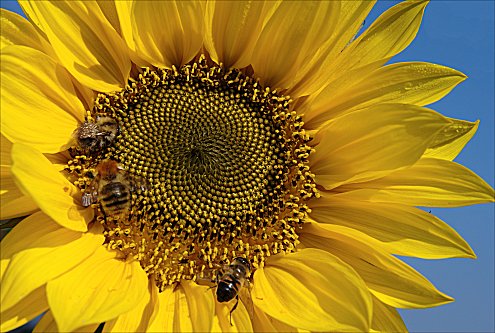
Ah, Sunflower
Ah, sunflower, weary of time,
Who countest the steps of the sun;
Seeking after that sweet golden clime
Where the traveller’s journey is done;
Where the Youth pined away with desire,
And the pale virgin shrouded in snow,
Arise from their graves, and aspire
Where my Sunflower wishes to go!
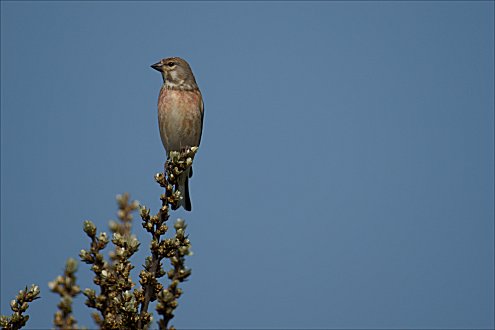
The Lily
The modest Rose puts forth a thorn,
The humble sheep a threat’ning horn:
While the Lily white shall in love delight,
Nor a thorn nor a threat stain her beauty bright.
Laughing Song
When the green woods laugh with the voice of joy,
And the dimpling stream runs laughing by;
When the air does laugh with our merry wit,
And the green hill laughs with the noise of it;
When the meadows laugh with lively green,
And the grasshopper laughs in the merry scene;
When Mary and Susan and Emily
With their sweet round mouths sing ‘Ha ha he!’
When the painted birds laugh in the shade,
Where our table with cherries and nuts is spread:
Come live, and be merry, and join with me,
To sing the sweet chorus of ‘Ha ha he!’

The Echoing Green
The sun does arise,
And make happy the skies;
The merry bells ring
To welcome the Spring;
The skylark and thrush,
The birds of the bush,
Sing louder around
To the bells’ cheerful sound;
While our sports shall be seen
On the echoing green.
Old John, with white hair,
Does laugh away care,
Sitting under the oak,
Among the old folk.
They laugh at our play,
And soon they all say,
‘Such, such were the joys
When we all–girls and boys –
In our youth-time were seen
On the echoing green.’
Till the little ones, weary,
No more can be merry:
The sun does descend,
And our sports have an end.
Round the laps of their mothers
Many sisters and brothers,
Like birds in their nest,
Are ready for rest,
And sport no more seen
On the darkening green.
Hans Hermans Natuurdagboek- May 2009
Poems: Williem Blake – Photos: Hans Hermans
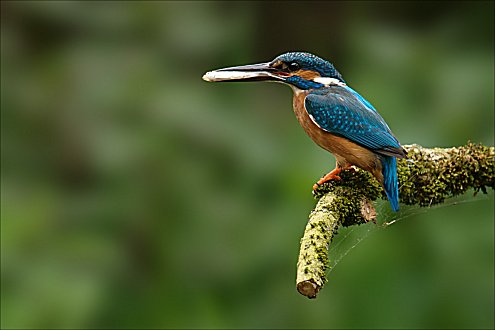
© hans hermans
KEMP=MAG poetry magazine – magazine for art & literature
More in: Blake, William, Hans Hermans Photos, MUSEUM OF NATURAL HISTORY - department of ravens & crows, birds of prey, riding a zebra, spring, summer, autumn, winter
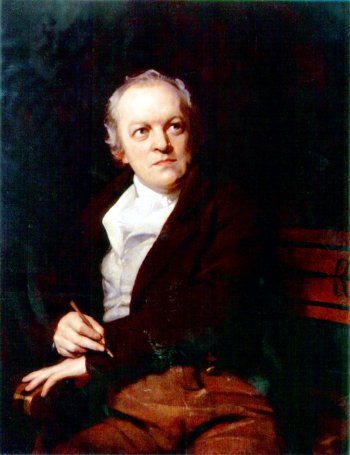
W i l l i a m B l a k e
(1757-1827)
NIGHT
The sun descending in the west,
The evening star does shine;
The birds are silent in their nest,
And I must seek for mine.
The moon, like a flower
In heaven’s high bower,
With silent delight,
Sits and smiles on the night.
Farewell, green fields and happy grove,
Where flocks have ta’en delight.
Where lambs have nibbled, silent move
The feet of angels bright;
Unseen they pour blessing,
And joy without ceasing,
On each bud and blossom,
And each sleeping bosom.
They look in every thoughtless nest
Where birds are covered warm;
They visit caves of every beast,
To keep them all from harm:
If they see any weeping
That should have been sleeping,
They pour sleep on their head,
And sit down by their bed.
When wolves and tigers howl for prey,
They pitying stand and weep;
Seeking to drive their thirst away,
And keep them from the sheep.
But, if they rush dreadful,
The angels, most heedful,
Receive each mild spirit,
New worlds to inherit.
And there the lion’s ruddy eyes
Shall flow with tears of gold:
And pitying the tender cries,
And walking round the fold:
Saying: "Wrath by His meekness,
And, by His health, sickness,
Are driven away
From our immortal day.
"And now beside thee, bleating lamb,
I can lie down and sleep,
Or think on Him who bore thy name,
Graze after thee, and weep.
For, washed in life’s river,
My bright mane for ever
Shall shine like the gold,
As I guard o’er the fold.
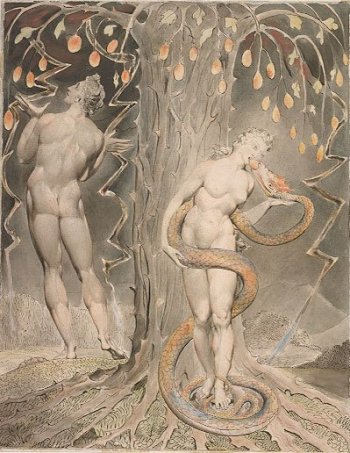
LONDON
I wandered through each chartered street,
Near where the chartered Thames does flow,
A mark in every face I meet,
Marks of weakness, marks of woe.
In every cry of every man,
In every infant’s cry of fear,
In every voice, in every ban,
The mind-forged manacles I hear:
How the chimney-sweeper’s cry
Every blackening church appalls,
And the hapless soldier’s sigh
Runs in blood down palace-walls.
But most, through midnight streets I hear
How the youthful harlot’s curse
Blasts the new-born infant’s tear,
And blights with plagues the marriage-hearse.
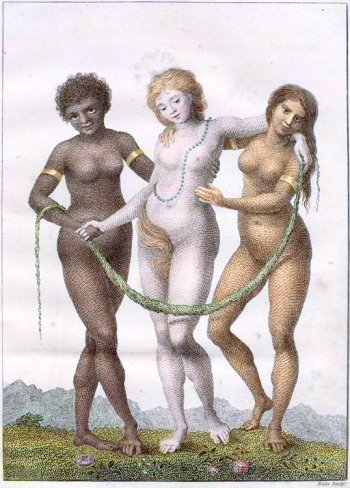
A Dream
Once a dream did weave a shade
O’er my angel-guarded bed,
That an emmet lost its way
Where on grass methought I lay.
Troubled, wildered, and forlorn,
Dark, benighted, travel-worn,
Over many a tangle spray,
All heart-broke, I heard her say:
‘Oh my children! do they cry,
Do they hear their father sigh?
Now they look abroad to see,
Now return and weep for me.’
Pitying, I dropped a tear:
But I saw a glow-worm near,
Who replied, ‘What wailing wight
Calls the watchman of the night?
‘I am set to light the ground,
While the beetle goes his round:
Follow now the beetle’s hum;
Little wanderer, hie thee home!’
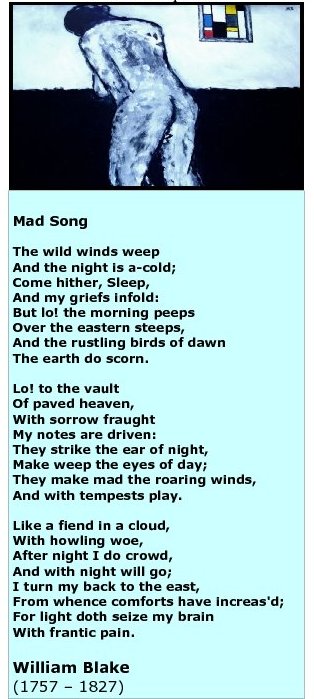
More in: Blake, William
Thank you for reading Fleurs du Mal - magazine for art & literature